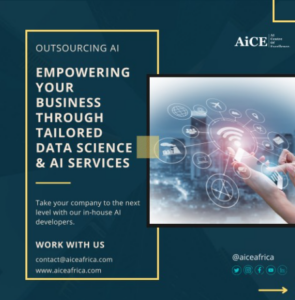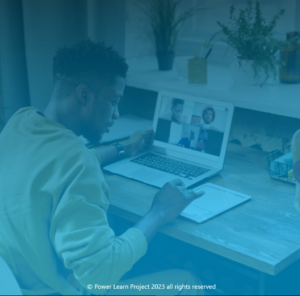John Kamara is a Tech Entrepreneur. founder of Adanian Labs – an Artificial Intelligence- AI-, Blockchain, and Smart Technologies Venture Studio -, created in Kenya 3 years ago and now present in 5 African countries, with 35 startups incubated so far. He also founded the AI Center of Excellence (AICE). Pan-African by heart, he is one of Africa’s leading experts on how businesses can leverage emerging technologies and drive competitive advantage for impact in various sectors such as finance, agriculture, health, education, gaming and startup enterprises
How can digital technologies revolutionise agriculture and help adopt more sustainable practices?
They can help us understand data in agriculture, in order to make better decisions about things like changing climate, biodiversity and farming. When you talk about regenerative agriculture or organic farming, it’s all around how to digitise the process flow, so that we stop waste, know where to build more infrastructure, how to support the farmers, how to generate more revenue. The world has changed. Every farmer in Africa should have a basic knowledge of digital technology. And we need different tools for different actors and different uses: smallholder farmers, logistic companies, extension workers, and farmers trying to make money from carbon credit. When we talk about seeds, how to measure quality and viability? We need to collect these data, to understand the data, to use the data to support these people at different levels of the value chain, even all the way to the market. If we can connect farmers to buyers faster to buy their perishable good and move it quickly to cold storage, we could reduce food waste. And with digital technology and data, we can begin to build very simple models of how to predict future, change and also how to predict problems in food security and provide mitigation-based interventions as well. So and ultimately with that as well, we can find pockets of opportunity to create jobs for young people in Africa, and make agriculture more sexy. So that’s a lot of what I do in agriculture right looking at the position of digital technology across the different value chains, but also looking at how you create commercially viable agri-tech businesses within that space.
And what can be your role in AGriDI, an ACP Innovation Fund-supported project promoting agri-based digital innovation in West Africa?
I support companies. Some of my start-ups are agri-tech start-ups. I work with agri organisations. I try to help smallholder farmer projects. I’m working with a number of organizations in the Agri space to help them visualise a couple of things. How we create more jobs in agriculture? I have an AI center of excellence, so I’m looking at early warning systems for climate, for farmers to build those types of technology. And then I do a lot of influencing, helping younger people to see agriculture as a viable career path and also a business opportunity.

John Kamara also founded the AI Center of Excellence (AICE)
You recently said that Africa must embrace and adopt AI as a key, if not the most important form of technology to make sure the continent is truly part of the fourth industrial revolution. Could you elaborate further on this transformative power for Africa?
Unlike other new technologies, this one is driven by data and many value propositions, and we can compete, if we embrace it from social and commercial good perspective for public service. It first helps us to unlock the value within our own ecosystems. It helps us to solve some of the problems in agriculture, climate change. It contributes to creating ways for non-biased opportunities for women, especially in the financial and inclusion sector. And it also means that we are more data-focused because we need to collect a lot of data. So it pushes us to do the right things. Then ultimately, it gives us the opportunity to also compete with the world. And for a lot of African countries, the ones who really see the opportunity of this new technology, it gives us foreign direct investment, because the world is interested in this particular space. And also it provides job opportunities for our young people, both locally and globally.
And what are the main challenges to address if we want to unlock its potential?
We are not ready. We are not prepared. We are not driven to practical decision-making. We are driven to very high-level political policy, necessary, but not fundamentally required at this moment. We need skills to participate in this ecosystem, we need to upskill people, train people, and educate our educators. Even outsource this talent, if necessary. Just take half of our money invested in education and educate in skill base for this industry. Because on day one a young person can sit here as a good data scientist, and work for a global company, that means that the money comes in here and he can buy goods and services. He has more disposable income. He doesn’t have to leave the country. Slowly he starts thinking of other things to do, for example, buy a house, and set up his own company. Then other people will say, ‘Hey, why don’t we go to invest in there, because there’s enough talent?’ Look at India. The same thing happened. It wasn’t because they had better infrastructure. The best infrastructure you have is the human capital, but it has to be qualitative to where the market is to derive real value out of it. You have to look at how are you investing in R&D? What do you want? What is the real value of this policy you’re trying to make?
Policies can help guide some efforts in some priority sectors like education, for example…
Yes, but they may first define the needs. I am obsessed with the opportunity for Africa with these new technologies, including cyber security, because we are literally digitising the whole continent. And we are not in a cyber framework. We need more cyber security experts than we ever thought about before.
Do you have any other main challenges in mind?
I try to find baseline things that we can solve and that can create ripple effects. We’re not going to solve all our problems instantly. But, what is our line of direction? Let’s say, well, five years from now, if we do this, we’ll create enough jobs or create enough value, and that will trickle down to everybody else. Then let us go down and provide some basic digital knowledge for people, so they can also begin to see the opportunity in the digital ecosystem. And then, let’s look at specific industries where we can actually create value. Agriculture is very important for us. Health care. Financial inclusion. Our SMEs, how to digitise them? And more importantly, how do we really create an intra-Africa trade? Policies are extremely important for governance, but they need to have an impact on end users.

Just to come back to digitisation and digital skills, you are the board chair of Power Learning Project Africa Pan-African Impact Organisation that launched last year, a flagship scholarship program called 1 Million Developers for Africa. Where are you today and what are the next steps?
We have reached 10,000 graduates in one year, with very little money, and a very practical approach to how you provide knowledge to people from day one. We are still a long way to go. Our goal is to train over the next two-three years 150,000 people. And we are consistently recreating how we provide learning: learning from the learners themselves, recreating the learning process, and the learning exercise, and also helping them find exit job opportunities. Now we are creating a ‘power learning acceleration program’ to help the ones who want to be entrepreneurs, and we want to collaborate with other partners in the ecosystem because we can’t do it alone.
With your hands-on experience and views on what makes (and breaks) a startup in the tech world, what sound advice could you give to start-up founders?
Three things. Think about a commercial business, first. Two, find a market opportunity for your product. More importantly and more than anything. Change your mentality from just thinking of yourself as a founder but as a businessman. Is this a commercially viable business in this market? On what other markets can you actually sell the service or product across the continent? How can you scale it up?
